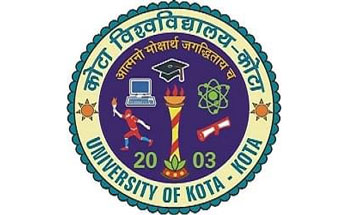 In the modern world, public-private partnerships (PPPs) have become a key strategy for promoting economic empowerment and development.
In the modern world, public-private partnerships (PPPs) have become a key strategy for promoting economic empowerment and development.
Today, public-private partnerships combine cooperation between the public-private sectors to jointly implement projects or provide public services. This cooperation is manifested in various forms such as infrastructure development, medical care, education, transport, energy and many others. PPPs typically involve a long-term contract between the public sector and a private company or consortium.
The legal framework of PPPs in Georgia is mainly regulated by the law “On Public-Private Partnership”, which was adopted in 2017. The law provides guidelines for project identification, procurement processes, risk sharing mechanisms, contract management and dispute resolution. The Partnership Fund acts as a central body responsible for the implementation and supervision of PPP projects in the country.
Along with the existing regulatory framework in Georgia, it is interesting to get acquainted with the practice in the European Union. In this regard, it should be said that the EU does not have a single regulatory framework for PPPs, as each member state has its own approach. However, the European Union provides guidelines and best practices through various directives and initiatives. The European Commission encourages Member States to create legal and institutional frameworks that ensure transparency, competition and value for money for PPP projects. In addition, the European Investment Bank and other financial institutions offer financial support for PPP initiatives.
Advantages of public-private partnership for the public sector:
- Improved service delivery: PPPs can improve the quality and efficiency of public services by leveraging private sector expertise, technology and innovation.
- Reduction of the fiscal burden: the private sector shares financial risks and investment costs, relieving the pressure on the state budget;
- Operational and maintenance risk transfer: Private partners often assume responsibility for operation, maintenance and life-cycle costs, ensuring more efficient asset management.
- Accelerated project delivery: PPPs can accelerate the delivery of infrastructure projects by reducing delays typically associated with traditional public procurement processes.
Advantages of public-private partnership for the private sector:
- Revenue generation: PPPs provide long-term revenue streams to private companies through the development, operation and maintenance of projects.
- Market expansion: Cooperation with the public sector allows private companies to enter new markets and benefit from government support.
- Reduced financial risk: sharing risks with the public sector, such as construction delays or cost overruns, provides greater financial stability for private partners.
- Knowledge transfer and innovation: Public sector collaboration offers opportunities for knowledge sharing, technological advances and innovation.
Speaking about the advantages of public and private partnership, it should be noted the aspects that contribute to the economic strengthening of the country:
- Efficient allocation of resources: PPPs optimize resource allocation through efficiency gains and private sector innovation.
- Risk sharing: Both sectors share risks and responsibilities, which ensures a balanced distribution of project risks.
- Accountability and transparency: PPP contracts often include performance indicators and monitoring mechanisms to ensure accountability and transparency in project implementation.
- Improving the quality of infrastructure: The involvement of the private sector often results in improving the quality of infrastructure due to their experience and focus on long-term results.
Public-private partnership can make a significant contribution to strengthening the economy of Georgia. PPPs can facilitate the construction and improvement of vital infrastructure such as transport networks, energy facilities and telecommunications systems, thereby improving economic connectivity and attracting investment. It is also worth noting that PPP projects create jobs both in the construction and operation phases, which contribute to economic growth and unemployment reduction.
It is significant that cooperation with the private sector allows for the promotion of achievements, experiences and best practices, innovation and updating of the country’s knowledge base. PPPs can stimulate economic diversification by stimulating investment in sectors such as renewable energy, tourism, health and education, while reducing reliance on traditional industries.
Through public-private partnerships, Georgia can improve the quality and efficiency of public services such as health care, education and utilities, which will lead to improvements in the standard of living of its citizens.
Public-private partnerships offer a collaborative approach to economic empowerment and development. By leveraging the strengths of both sectors, countries like Georgia can leverage private sector experience, innovation and financial resources to accelerate infrastructure development, improve public services, promote economic diversification and stimulate sustainable growth. Effective regulation, careful risk management and transparent governance are essential to maximize the benefits of PPPs while minimizing potential downsides. As Georgia continues to strengthen its economy, public-private partnerships through well-designed and properly regulated PPPs can play a critical role in achieving these goals.





